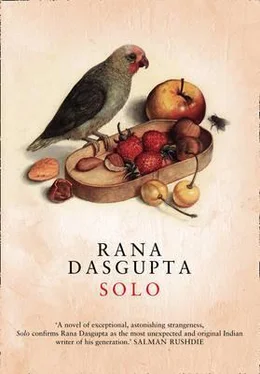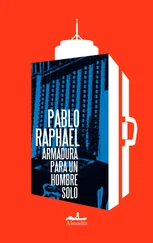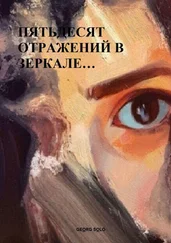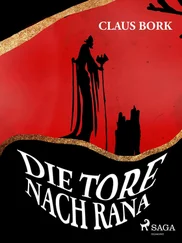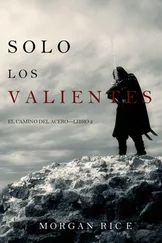‘Hello,’ said Plastic, looking around the shop. What a beautiful place it was. How amazing he had never seen it before.
‘May I have a look around?’
‘Be my guest!’ said the man, engrossed in his work.
They had old gramophone players on sale here, and hundreds of records. They had shelves and shelves of music scores. An entire case was devoted to metronomes. Plastic looked at the rows of flutes and oboes in the glass cases; he looked at the harps and organs laid out.
Finally he sat down at a piano and, hesitantly, he began to play.
23
ULRICH IS WAITING ON THE CORNER of Hudson and Canal. Boris pulls up in a brand-new car, and opens the passenger door. He leaves the engine running.
‘Don’t you want to stop for a moment?’ suggests Ulrich. ‘I’d like to buy you a drink.’
‘I have to go,’ says Boris. ‘I have to meet someone soon.’
Ulrich lowers himself into the car and settles in the seat. He shuts the door, and Boris sets off. The car turns a corner and heads down a slope, and now they are driving underground. There’s hardly anyone else in sight, and driving through the Holland Tunnel is like swimming in a yellow dream.
Boris is accustomed, now, to American roads.
When they come out on the New Jersey side, Ulrich takes a last look back at the Manhattan skyline. He doesn’t think he will see it again.
Boris finds that Ulrich has introduced a new smell into the car: a smell of old candles and much-worn wool. It’s a familial smell, and Boris is drawn to this strange old man. He feels bad that he shut the door in his face the first time he saw him.
The evening is pure sapphire light, and the empty road is broad and peaceful. There are green banks of grass along both sides of the highway, blocking out the view, but when they reach the crest of a hill they get a panorama over the rolling green of New Jersey. There is a sheepdog bringing in the flock at the end of the day, the sheep running in waves among the factories.
‘I look at the beauty of an evening like this,’ says Boris, ‘and the fact Irakli is in the ground and cannot see it is the most terrible thing in the world.’
Ulrich turns so he is facing Boris, and the new leather creaks. The car moves so smoothly there is hardly any noise from the engine.
‘I found that old note again,’ Boris continues, ‘the one you slipped under my door with your phone number — and I wanted to see you one more time. I keep thinking back to what you said about Irakli when I met you in the street. As if you already knew.’
Ulrich says,
‘I didn’t think it would go so far.’
They pass a fairground in the distance, the big wheel glinting in the sun.
‘He was like the other half of myself,’ says Boris, ‘and I thought he would always be around.’
He looks desolate and strung out. Ulrich says to him,
‘You haven’t lost Irakli, you know. I don’t know if it helps to say that. I lost a friend once myself, and I know how it goes.
‘He’ll find his way inside you, and you’ll carry him onward. Behind your heartbeat, you’ll hear another one, faint and out of step. People will say you are speaking his opinions, or your hair has turned like his.
‘There are no more facts about him, that part is over. Now is the time for essential things. You’ll see visions of him wherever you go. You’ll see his eyes so moist, his intention so blinding, you’ll think he is more alive than you. You will look around and wonder if it was you who died.
‘Gradually you’ll grow older than him, and love him as your son.
‘In the future, you’ll live astride the line separating life from death. You’ll become experienced in the wisdom of grief. You won’t wait until people die to grieve for them. You’ll give them their grief while they are still alive, for then judgement falls away, and there remains only the miracle of being.’
Boris drives on. Ulrich watches the play of thoughts on his face, and the swallow in his throat. His exterior is as thin as a meniscus, and Ulrich can see through to the grinding inside. This son of his daydreams has already done things that Ulrich could not do in a hundred years. But he is still so young, and he is tossed around by feelings he cannot understand. It will be difficult to leave him, knowing he will be alone.
Ulrich tells himself, reassuringly,
‘Millions of people manage to lead their lives, and there’s no reason he should be any different. He’s not a bad child. Considering what happened to me, I could have made something much worse. I could have made a monster.’
He worries about Khatuna. He doesn’t know where she will end up or what she will become. She has grown beyond him. She has become volatile, and he cannot even approach her.
‘They are not the children I thought I would have,’ he thinks. ‘I always imagined I would produce people more civilised. But a confounded man like me, living through such mess — it’s not surprising if my offspring carry a few scars. They’ll have a better life than I did, and things will smooth themselves out. Their children will be better than they. In a couple of generations they’ll give birth to angels, and there’ll be nothing left to show what bad times we sprang from.’
By now the highway is delivering prophecies of sea. There are seabirds overhead, and there’s a maritime smell in the air. When the gaps line up in the landscape, it is possible to spy the continent’s end.
Ulrich tells Boris that he’s been holding on to a story for him and now he wants to let it out.
‘Back in my day,’ he says, ‘there was a scientist named Albert Einstein. I had a thing for science when I was young and I thought Albert Einstein was the greatest man alive. I even studied at his university in Berlin, where I used to see him in the flesh.
‘One day I was walking behind him in a corridor and he dropped a sheaf of papers. He didn’t notice he’d lost them, so I picked them up and raced after him. I handed them over and he looked at me, smiled and said, I would be nothing without you .’
The old man gives Boris a look.
‘What did he mean? He would be nothing without me? It seemed so personal, the way he said it. It seemed like a divine verdict. In those days, I had such an opinion of the man that there had to be greatness in his words even if he was only talking about a few missing papers. I would be nothing without you . I had a hopeful ego in those days: I tried to think of something I had done that could have contributed to Einstein’s achievement. I assumed that a great success such as his must be fed by many smaller successes all around: perhaps I was part of this blessed orbit, I thought, perhaps I would grow to unfold exploits and discoveries of my own.’
Boris’s eyes are fixed on the road ahead. He has to be in a certain place at a certain time, so he has those thoughts in his head. He overtakes a solitary truck.
‘Later on,’ says Ulrich, ‘I heard new stories about Albert Einstein which altered my thinking.’
He tells Boris the story of Einstein’s pitiable wife, Mileva. He tells him about the Nobel Prize money lost in the Wall Street crash. He tells him about the daughter mislaid somewhere in Serbia, and the son abandoned in an insane asylum. He tells him all these stories and he says,
‘I’d imagined that Einstein would live in a realm of uninterrupted success. Fulfilment as far as the eye could see: happy people bursting with rich conversation and achievements. But it wasn’t true. He was surrounded by failure. The people close to him were blocked up and cut off. Their lives were subdued, and they were prevented from doing what they hoped to do.
‘And that is exactly the point. That’s how he could make such unnatural breakthroughs. Do you see? How could one man do what he did otherwise? He could not summon such earth-shattering energy on his own!’
Читать дальше
Конец ознакомительного отрывка
Купить книгу
